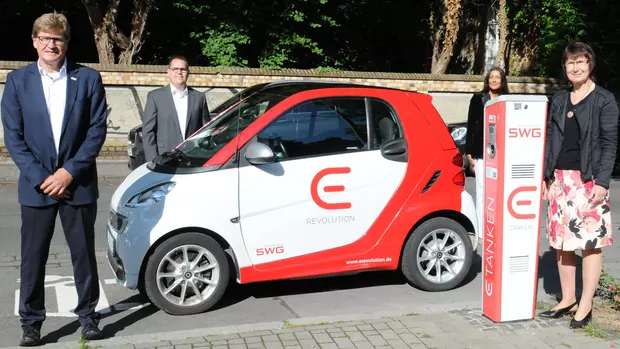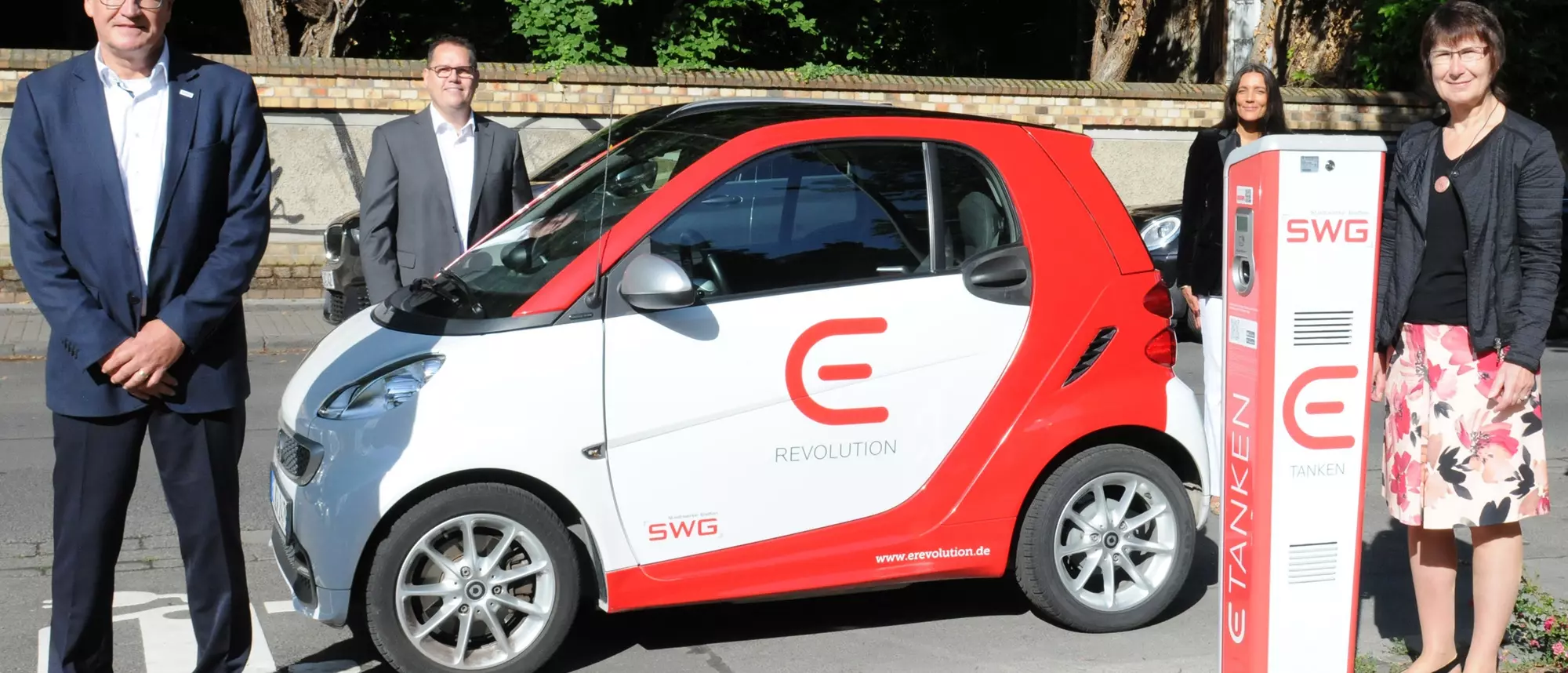
The university city of Giessen has had four new charging points installed, each with two charging points, at which a total of eight e-vehicles can charge at the same time. The facilities are operated by Stadtwerke Gießen. The electric charging stations were 90 per cent financed by federal funds.
The switch to e-mobility is one of the pillars of the energy transition. In order to convince more and more people of the suitability of e-cars for everyday use, the most comprehensive charging infrastructure possible is required. The city of Giessen has now once again met this key requirement: On 30 June, four charging stations, each with two charging points, went into operation - two in Senckenbergstraße in the parking bays in front of the castle and two in Friedrichstraße in the immediate vicinity of the eye clinic. To finance the electric charging stations, the city applied for and received grants from the special "Energy and Climate Fund" and from the Federal Ministry of Transport's project funding for electric mobility in the area of vehicles and charging infrastructure. The grants totalled 285,786 euros. With total costs of 317,540 euros, the funding rate is 90 per cent.
"The new charging points take Giessen another step closer to becoming a CO2-neutral city," said city councillor Astrid Eibelshäuser on the occasion of the official commissioning. Just like the existing charging points in the region, the new e-charging stations will also feed Giessen's green electricity into the vehicle batteries.
SWG on board
The university city of Giessen commissioned
Stadtwerke Gießen (SWG) to supply and install the charging points. SWG is also responsible for their operation. This means that billing, maintenance and any repairs are the responsibility of the energy experts from Lahnstraße. "We are very happy to have SWG as a competent and experienced partner when it comes to energy," explains Katja Buß, deputy head of the city's building construction department and as such responsible for the project.
Matthias Funk, Technical Director of SWG, sees SWG's commitment as an important signal: "We are currently working with our subsidiary smartSTADTwerke on solutions that are of interest to many energy suppliers - including a charging network, for example. The operation of the two municipal charging points is an excellent reference for us, which will help us to convince others."
Just the right size
As far as the compatibility of the charging points is concerned, the city of Giessen's building construction department opted for the standard that is emerging in Germany: the eight charging points each charge the vehicle batteries with an output of 22 kilowatts. The connection requires a cable with a type 2 plug, which is part of the basic equipment of practically every electric car sold in Germany and is usually also used on the wallbox at home. "Admittedly, there are also faster charging options," explains Matthias Funk, "but 22-kilowatt columns are currently the best compromise between cost and performance." In fact, a Smart EQ Fortwo would only need to be connected to the charging station for around 40 minutes to fill its empty batteries to 80 per cent. "For everyday use - for example, to get home after shopping or a visit to the clinic - the performance is easily sufficient," everyone on the installation team is certain.

